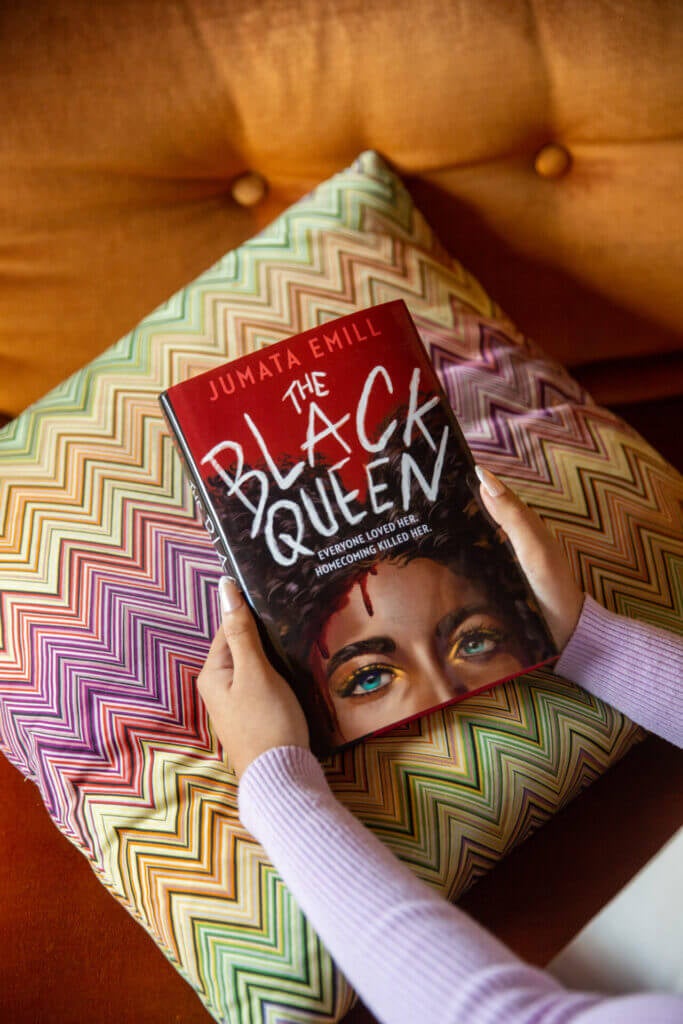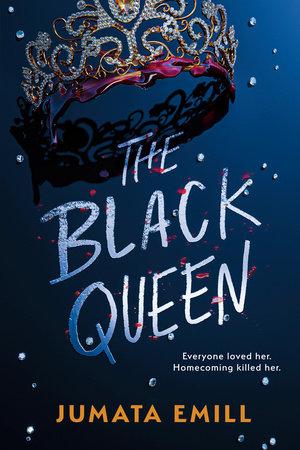
Did you know that Jumata Emill, author of The Black Queen, has reported on true crimes in addition to writing about fictional crimes? We asked him to share his journey from journalism to fiction. Read on to discover what inspired him.
From Reporting True Crime to Writing Crime Fiction
by Jumata Emill
“Write what you know.”
Aspiring writers hear that a lot. I used to inwardly roll my eyes every time someone said it to me. I didn’t want to do that. Writing, like reading, has always been a form of escapism for me. I liked doing it because it gave me the opportunity to reimagine a better world than the one I lived in. I’d rather spend hours with fictional people doing things I wish I could, in places I’d never been, overcoming challenges I never could. So, it’s kind of ironic that after spending fifteen years as a journalist covering lots of crimes in the Deep South that I ended up doing exactly what I’d been trying to avoid: drawing on what I learned as a news reporter about crimes and how they are solved to write fictional murder mysteries with amateur teen sleuths who know how to stay one step ahead of law enforcement.
What changed my stance on writing? Well, a lot of things.
REPORTING ON CRIME . . .
For starters, reporting on crime gave me new insight into the world. Every day was essentially a front-row seat to the most depraved and reckless impulses of human nature. Frequent peeks at the dark underbellies that can exist in some of the most idealistic communities. It wasn’t fun. But it was very interesting. Shadowing police officers was eye-opening. Getting to learn how they went about solving crimes reminded me why I used to love reading Nancy Drew and Hardy Boys books as a kid.
An unexpected takeaway from talking to law enforcement, district attorneys, and coroners was discovering that shows like CSI and Law & Order lie! (Gasp, shocker!) Most of the small-town police forces I was covering didn’t have sophisticated crime labs where they conducted cool DNA testing on evidence, making it tougher for criminals to get away with murder. The crimes that were solved were often done though good old-fashioned police work which involved knocking on doors, talking to witnesses, being observant, and paying attention to details, piecing together fragments of a victim’s life to get to the truth. Through my coverage of a murder trial, I learned how law enforcement agencies used cell phone data to bust criminals. Writing about the disparities that existed between what family and friends knew about victims compared to the evidence police had dug up on those same people showed me why secrets can be dangerous.
The less fun part about the beat was realizing how many crimes don’t get solved. Arrests make for better headlines, but the sad truth is that many families never get the justice they deserve, especially when they are black and brown. There were other glaring disparities that became apparent to me as well, including how differently cases get handled when the victims and/or suspects are white. Cops are humans, and humans have agendas, and those agendas can be driven by internal bias. As I was transitioning off the crime beat, I was haunted by a familiar emotion: being part of world I wanted to escape but felt passionate about attempting to change through my writing.
WRITING ABOUT CRIME . . .
The writing bug hit me like a freight train five years ago. But unlike all the times before, when inspiration led me toward writing about supernatural fantasy and horrific otherworldly nightmares, I decided to tap into two things that became a growing obsession for me: my love for young adult stories and the desire to do something I could never do as a newspaper reporter: make sure justice is always served to those who deserve it. Through crime fiction I could call out the disparities that exist within the criminal justice system, something I wasn’t seeing in the YA thriller/mystery space at the time. Also, brown and black people could be the heroes and not just the stereotypical enemies of law enforcement. And all those years of chasing police officers helped me figure out how to reverse engineer murder mysteries that delivered on the plot twists and insane villains that readers of the thriller genre love.
All that to say, “write what you know” has some merit to it. But don’t take my word for it. It’s better if a person finds that out for themselves through their own unique journey, whatever that may be.
About the Author
Jumata Emill is a journalist who has covered crime and local politics in Mississippi and parts of Louisiana. He earned his BA in mass communications from Southern University and A&M College. He’s a Pitch Wars alum and a member of the Crime Writers of Color. When he’s not writing about murderous teens, he’s watching and obsessively tweeting about every franchise of the Real Housewives. Jumata lives in Baton Rouge, Louisiana, and is the author of The Black Queen and Wander in the Dark.


